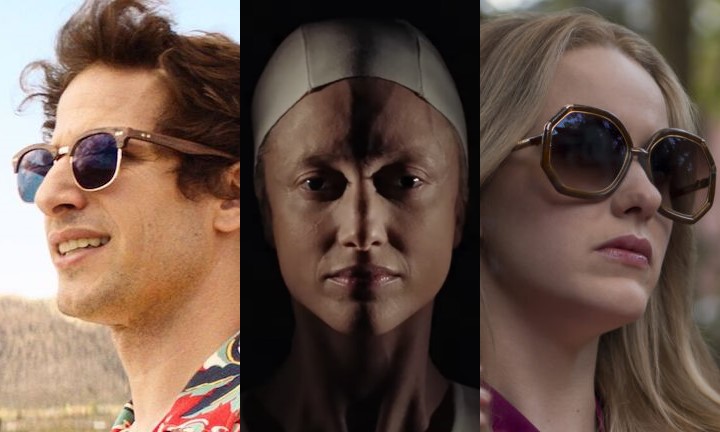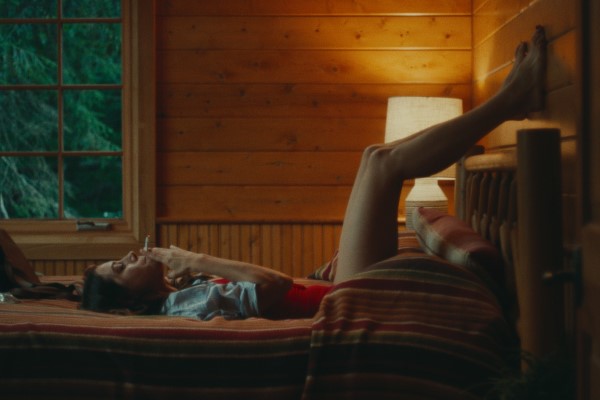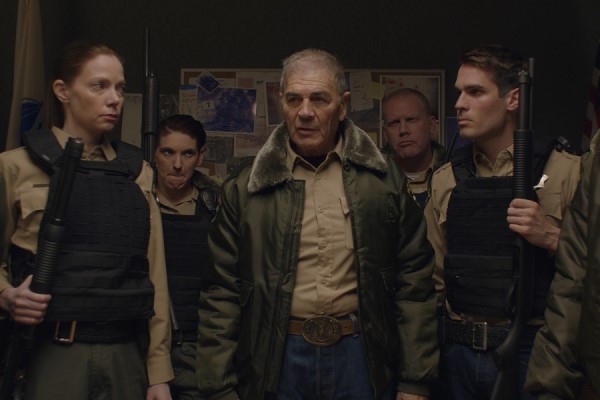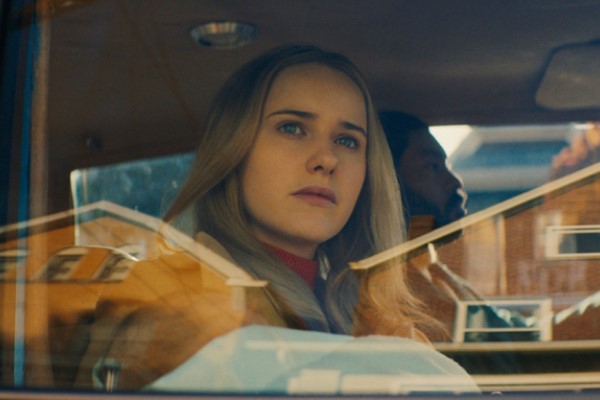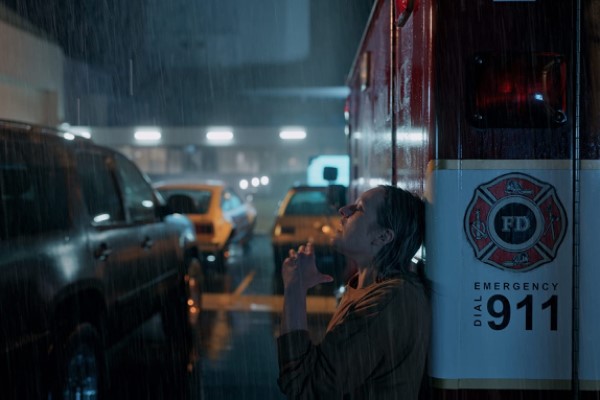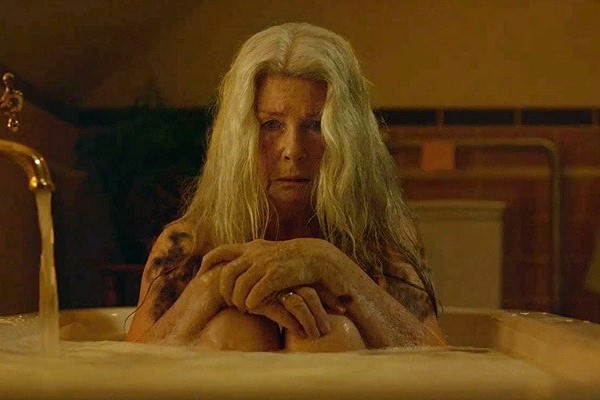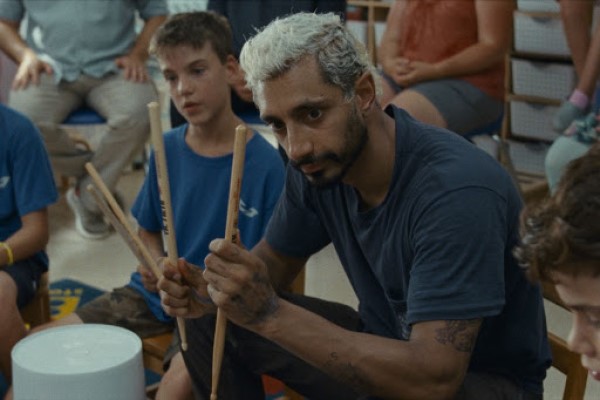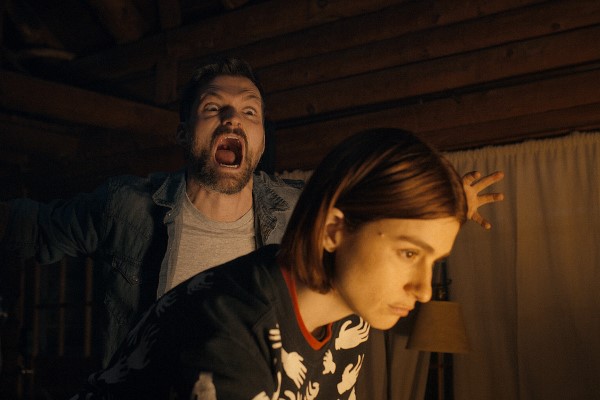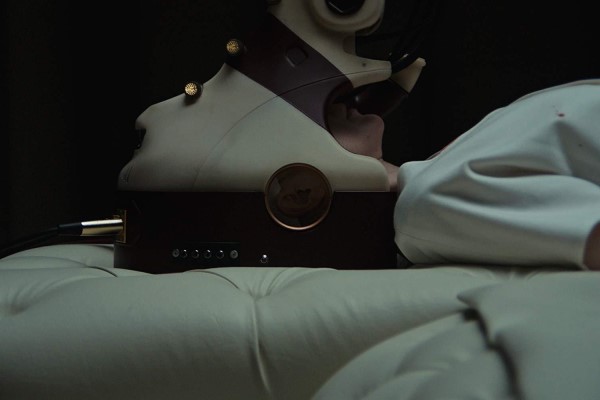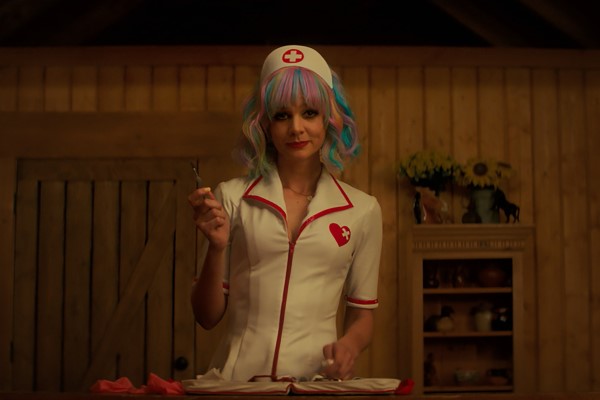First, a plea: Support your local movie theaters.
I am not ignorant to the fact that I have been incredibly fortunate during one of the most difficult years in our country’s history. As the COVID-19 pandemic has ravaged the United States, amassing a domestic death toll of 335,000+ and leaving more than 10 million Americans unemployed, I have been healthy, employed, and able to work from home. I do not take that for granted. I have had my fair share of personal struggles related to the pandemic, but they pale in comparison to the dire circumstances facing others.
State and local governments have been forced to implement strict measures to mitigate the spread of COVID-19 and that has had economic ramifications, with businesses struggling to keep their doors open and others forced to close them, either temporarily or permanently.
The theater industry is struggling. Due to public health guidelines advising against large gatherings in enclosed spaces, movie theaters have been forced to operate at reduced capacity or shut down completely. Distributors have largely opted against releasing major motion pictures until theaters are able to screen their films for full capacity audiences, fearing the loss of box office profits.
I understand there are those for whom the home viewing experience is more affordable or convenient, but personally, I don’t want to live in a world without movie theaters. The past year offered an unpleasant preview of what life would be like without the moviegoing experience, and I hated it. It was miserable. I miss settling into a seat in a darkened room with an overpriced bucket of popcorn in my lap, eagerly awaiting the opportunity to disconnect from the outside world for a couple hours and lose myself in the story about to be told on the big screen before me.
Some go to church every Sunday. I go to the movie theater. It is my cathedral.
So if you are able, please consider supporting your local movie theater. If you’re not comfortable going to the movie theater under the current conditions of the pandemic — and I can’t in good conscience encourage you to go as of this writing — I implore you to explore other ways to offer your financial support. Buy a gift card for future use. Purchase concessions to-go. Reach out to theater management and ask if there are other avenues to help keep their doors open, especially if they are an independent theater.
There, I’ve made my pitch. I’ve said my peace.
If you haven’t already skipped ahead, here are my Top 12 Movies of 2020.
12. Black Bear
I don’t know how much of the plot I want to divulge here, other than to say that the first half of Black Bear finds a self-effacing filmmaker (Aubrey Plaza) retreating to a remote cabin being rented out by a couple (Christopher Abbott and Sarah Gadon) who are expecting a child together. Awkward dinner conversations between the three of them over one too many glasses of wine lay bare the stretched tendons of the couple’s relationship, and the night takes a harrowing turn shortly thereafter. Then in the second half, the film pulls a 180 that will either have you sitting up in your chair or scratching your head in confusion. There are layers of meta storytelling at play in Black Bear — blurring the line between fiction and the reality we draw from to craft compelling fiction — and your mileage may vary depending on your willingness to peel back and engage with them. But I hope we can all agree on Plaza’s revelatory performance as she continues to feast on film roles that showcase her impressive range.
Writer(s): Lawrence Michael Levine
Director(s): Lawrence Michael Levine
11. The Wolf of Snow Hollow
Women are being savagely murdered by a wolf-like attacker in the remote ski community of Snow Hollow, but for police officer — and recovering alcoholic — John Marshall it is only the latest addition to a laundry list of personal problems. His father refuses to retire as sheriff, even as a heart condition begins to affect his health. His ex-wife berates and belittles him in front of their teenage daughter. And the kitchen cabinet above his stove, where he keeps a solitary bottle of alcohol, beckons to him as he buckles under the weight of the responsibilities he has foisted upon himself. John’s hair-trigger temper and emotional outbursts are often played for laughs, but The Wolf of Snow Hollow makes no excuses for his toxic behavior. Much like the monster rampaging through Snow Hollow, John inflicts his rage on those around him, because it is much easier to lash out than it is to look inward.
Writer(s): Jim Cummings
Director(s): Jim Cummings
10. Mank
Contrary to the pre-release furor, Mank has little interest in wading into the decades-spanning debate over who deserves credit for authoring the script for Citizen Kane — then 24-year-old wunderkind filmmaker Orson Welles or out-of-work screenwriter Herman J. Mankiewicz, whom Welles commissioned to write the first draft while bedridden following a car accident. Mank is told from the sole perspective of the latter, but don’t mistake that for director David Fincher — or his late father, Jack Fincher, who wrote the screenplay nearly a decade prior to his death in 2003 — choosing a side. It is more interested in the author himself than in authorship, painting a black-and-white portrait of a haggard writer who is drowning in gambling debt and alcohol. Set in the 1930s, Mank is steeped in the studio politics of that era, when some of the most powerful men in Hollywood were also some of the most powerful men in politics. Mankiewicz is not blind to it, but is instead driven to cynicism by it, only realizing late in his career — and his life — that artists have the power to shape the world too.
Writer(s): Jack Fincher
Director(s): David Fincher
9. I’m Your Woman
It’s the 70s. You have a member of a crime syndicate who decides to put a bullet in his boss, creating a power vacuum that sparks conflict between rival factions as each of them sees an opportunity to seize the throne. Sound familiar? Well, director Julia Hart and her co-writer Jordan Horowitz thought so. I’m Your Woman takes the road less traveled and unfolds from the perspective of Jean, a housewife who is whisked away in the middle of the night, with her infant son in tow, by one of her husband’s associates. Her husband is the one who murdered his boss and because he is on the run — with enemies in pursuit — she too must flee. Cleaved from the comfort of her insulated existence, Jean, now a single mother, is thrust into unfamiliar territory where even a friendly chat with a neighbor can put her life in peril. And Rachel Brosnahan is brilliant in the role of a woman who is learning not only how to be a mother, but how to assert herself in a world where she is ordinarily an afterthought.
Writer(s): Julia Hart & Jordan Horowitz
Director(s): Julia Hart
8. The Invisible Man
The title character of the original 1933 Universal Pictures adaptation of H.G. Wells’ The Invisible Man was a well-intentioned scientist driven mad by his own innovation. The 2020 version re-imagines invisibility as a means to an end for a wealthy engineer and businessman who seeks not to dominate the world but to exert control over an ex-girlfriend who manages to extricate herself from their abusive relationship. She is informed that he has committed suicide after their separation but she is disbelieving, and her suspicions are seemingly confirmed when she detects an unseen presence systematically manipulating and destroying her life. It’s a timely update to a classic story that is more than a century old, especially as Elisabeth Moss’s character is made to appear crazy. Both she and the audience know that threat to her is very real, but are helpless as her pleas for help are downplayed, ignored, or dismissed out of hand. Sometimes the scariest monster is the one only you can see.
Writer(s): Leigh Whannell
Director(s): Leigh Whannell
7. Relic
True horror is looking into the eyes of a loved one — worse even, the person who raised you, who is supposed to love you more than anyone else — and seeing a stranger looking back at you. Relic leads you to believe that a sinister entity lurks in the shadows of the home where a middle-aged woman, Kay, and her grown daughter, Sam, must wrestle with the declining mental health of their family’s elderly matriarch, Edna. But it should be obvious to anyone who has had a friend or family diagnosed with Alzheimer’s or dementia that the specter is a stand-in for the most cruel of diseases, the ones that rob people of the memories that make them whole. Kay and Sam clash over how to best care for Edna, whose behavior grows more erratic as her mental deterioration gives way to a physical metamorphosis in the form of black mold that spreads across her body. The question becomes whether Edna will be lost completely, or whether there is a visceral part of her that can never be erased.
Writer(s): Natalie Erika James & Christian White
Director(s): Natalie Erika James
6. Sound of Metal
The last year has been an education in the lengths people will go to cling to a sense of normalcy. When forces outside of our control shatter our world, there are those who will rush to gather up the scattered pieces without thinking, ignoring their sharp edges or refusing to acknowledge that some pieces may no longer be within their grasp. Sound of Metal is about this very crisis, following a drummer and recovering drug addict, Ruben, who realizes he is losing his hearing. Not only does this threaten his livelihood, but Ruben also fears how this will affect his relationship, since he is one half of a metal duo with his singer girlfriend. He is determined to recover what he lost through cochlear impacts, but first finds refuge in a community for deaf recovering addicts, where Ruben is given the chance to either make peace with his circumstances or continue to fight them. It is career-best work from Riz Ahmed, who takes the cloth of what could have been a melodramatic role and cuts a living and breathing character.
Writer(s): Darius Marder & Abraham Marder
Director(s): Darius Marder
5. Scare Me
Stranded at a snowy mountain cabin resort when a storm knocks out the power late at night, a pair of writers — one of the aspiring variety and the other a best-selling horror author — engage in a not-so-friendly competition to see who can tell the spookier story. Scare Me could have very well been a stage play, because their stories rely entirely on the ability of lead actors Josh Ruben (also the writer and director) and Aya Cash to conjure story elements out of thin air. Cash’s range is on full display, from supplying the vaguely Slavik accent of a creepy grandfather to animating the physical struggle of a fresh-faced American Idol contestant wrestling with the Devil for control of her body. But the passive-aggressive tension between the two writers is where Scare Me strikes a nerve, pitting his simmering resentment of her success against her thinly-veiled contempt for his inferior talent.
Writer(s): Josh Ruben
Director(s): Josh Ruben
4. Possessor
No film in the last year built a better case against remote working than Possessor. Andrea Riseborough is a contract killer whose most effective weapon is tech that allows her to inhabit the body of a person close to her target, using them to pull the trigger before turning the gun on her host on the way out. But the process exacts a debilitating mental toll, and the more time she spends as someone else, the more she becomes detached from her own identity. Her loosening grip on her humanity manifests in the gruesome violence she unconsciously relishes inflicting upon her marks. So when she slips under the skin of a man engaged to the daughter of a wealthy CEO, she finds herself wrestling with him for control, and their nightmarish tug-of-war has catastrophic consequences for them both. Riseborough, a chameleon in her own right as a performer, is perfect casting as an amorphous assassin who seems torn between clinging to her own personal connections and severing them completely.
Writer(s): Brandon Cronenberg
Director(s): Brandon Cronenberg
3. Promising Young Woman
Cassie Thomas lives the double life of a masked vigilante. By day, she is a 30-year-old coffee shop barista and lives at home with her parents, who sit down at the breakfast table every morning wondering if today will be the day she moves on with her life. By night, she masquerades as a defenseless lush in bars and clubs, setting the bait for a knight in shining armor to swoop in and see her home safely. Whether that gentleman follows through — or decides instead to take a detour — determines his fate. We come to learn that the catalyst for Cassie’s social experiment was a traumatic event from med school that led her to drop out. When the people who had a hand in that trauma re-enter her orbit, the chance for vengeance is too sweet to resist. Writer Emerald Fennell’s directorial debut is a razor sharp and darkly comic revenge fantasy for the #MeToo era, powered by a wicked and career-defining performance from Carey Mulligan.
Writer(s): Emerald Fennell
Director(s): Emerald Fennell
2. The Dark and the Wicked
Much like in Bryan Bertino’s directorial debut, The Strangers, which saw violence and terror visited upon a couple staring down the end of their relationship, the estranged siblings at the center of The Dark and the Wicked are being circled like prey. But instead of a trio of masked tormentors plying their trade, Louise Straker and her brother Michael are besieged by a fiendish supernatural presence that has taken root in the secluded farm where their harried mother is caring for their dying father. Returning home, against the protests of their mother, to pay their respects, Louise and Michael realize only too late that they’ve entered the orbit of a sadistic evil with a pull like gravity. You can fight it all you want, but you will never be free from it. The Dark and the Wicked is as much a home invasion story as The Strangers, the key difference being that the invading force of the former understands that suffering is best served not from behind a mask, but rather in the guise of a familiar face.
Writer(s): Bryan Bertino
Director(s): Bryan Bertino
1. Palm Springs
It’s impossible to say at this point whether Palm Springs — a romantic comedy about a pair of wedding guests who find themselves trapped in a 24-hour time loop at a Palm Springs hotel resort — would have resonated as much in a year without a global pandemic, economic shutdowns, and stay-at-home orders. Alas, the existential crisis at the heart of the film felt eerily prescient in the dumpster fire of 2020. Andy Samberg’s Nyles and Cristin Milioti’s Sarah search for meaning in an existence where nothing matters and every day is the same as the next. Nyles finds comfort in the freedom from responsibility, whereas Sarah attempts to do the same before realizing being stuck in neutral in perpetuity means never being able to move forward from the mistakes of her past. It is a smart, funny, and heartfelt romantic comedy that makes room for introspection between choreographed dance numbers and dreaded trips to the ICU, and that is what elevates Palm Springs for me. Well, that and a homicidal J.K. Simmons.
Writer(s): Andy Siara
Director(s): Max Barbakow
Just A Bit Outside (in alphabetical order): The Assistant, Bad Education, Bill & Ted Face the Music, Birds of Prey (And the Fantabulous Emancipation of One Harley Quinn), Da 5 Bloods, Freaky, His House, Kajillionaire, Minari, Nomadland, One Night In Miami…, She Dies Tomorrow, Tenet, The Trial of the Chicago 7, and The Way Back
